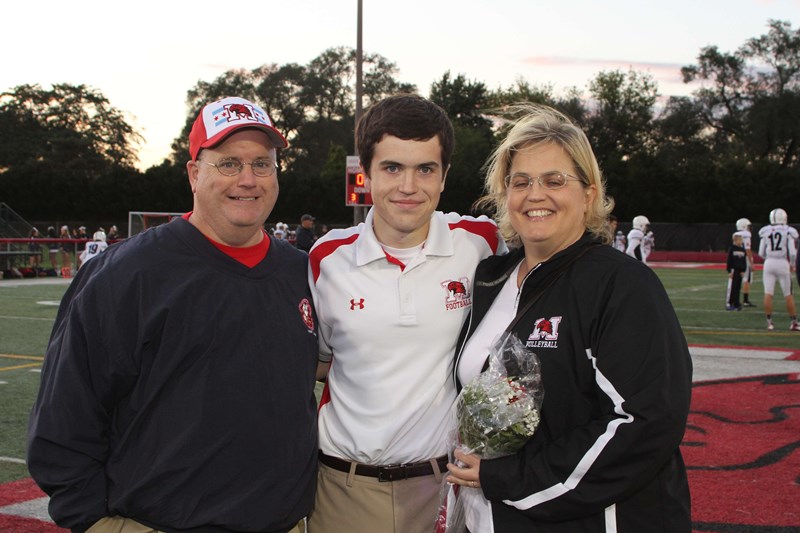Rewarding Excellence

Pat Dunne, the head football coach at Chicago’s Marist High School, rewarded excellence in a unique way this past football season. He saw excellence and rewarded it where no other coach whom I know ever did.
Ray Holmes, a senior volleyball player at Marist, served as the Manager of the football team for the previous four years. Dunne recognized that Holmes put in 20 hours of work on a weekly basis. He recorded all the practices and games, sending game film to Hudl to be organized and segmented, and kept track of all the players’ equipment. (Hudl is a software company that helps coaches and athletes stay organized and prepared.)

Ray Holmes (center) with his mom and dad on senior night.
Dunne summarized Holmes work by saying, “He’s exactly what being a part of a team is all about. He does everything for this team. He does a ridiculous amount of work for me.”
I believe those of us who coached have had managers like Ray Holmes and we truly appreciated all their work. We saw their excellence on a daily basis, but Coach Dunne took it a step further.
When he named his five captains for the 2015 year, he then announced to the team that Holmes would be joining them as a sixth captain, something he or no coach I know ever did before. Holmes attends all the captains’ meetings and is a part of all the pre-game coin tosses with the five playing captains.
Coach Dunne saw excellence and rewarded it.
I served for seven years on Principal Father Roger Kaffer’s cabinet at Providence Catholic High School. Father, later Bishop Kaffer, had the insight to add a senior each year to the cabinet. He would pick an outstanding senior, someone like Ray Holmes, to join us. Even though we obviously had a different student in each of the seven years I participated in the cabinet, I always felt the best member of the cabinet, the one who had the most meaningful contributions to our work, was the student.
Like Coach Dunne, Father Kaffer saw and rewarded excellence.
Leaders may consider looking at their organizations and seeing where excellence truly resides, regardless of the person’s position in the organization, and recognize, utilize, and reward it.
